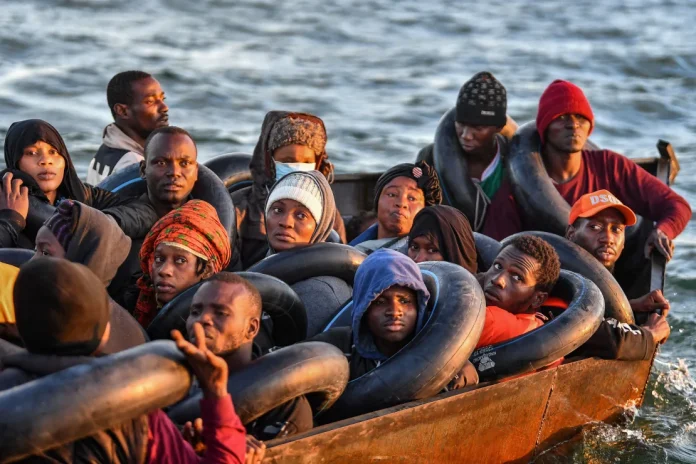The Spanish government is developing a temporary “strategic plan” to alleviate the migration crisis in the Canary Islands and the Spanish enclave of Ceuta in North Africa, according to Euractiv.
Meanwhile, the European Border and Coast Guard Agency (Frontex) urged Madrid to formally request assistance to contain the humanitarian emergency. The Spanish Minister for Youth and Children, Sira Rego, announced during a visit to Ceuta on Wednesday that the progressive executive of Prime Minister Pedro Sánchez was currently working with the EU on a contingency plan.
In the short term, the Spanish government intended to explore “the possibility of implementing European programmes that welcome and protect asylum-seeking children” and pursued a policy of “binding and supportive reception of children in EU territory,” Rego stated.
Recent official figures showed that arrivals of illegal migrants from Africa reached record levels in Spain in the first two weeks of August. The increase was 126 per cent in the Canary Islands and 143 per cent in Ceuta. A large number of those irregular migrants come from Mauritania and the Sahel region, where the current escalation of violence is displacing thousands of people and creating serious security problems for the EU.
The migration crisis also became a contentious political battleground between the government and the Spanish People’s Party (PP). This is the country’s main opposition force, which accuses the PSOE of lacking a real migration policy and of “improvising” with the current emergency situation.
The PP and PSOE are at odds over amendments to the current Immigration Law (Ley de Extranjería) to make the admission of unaccompanied immigrant minors mandatory in Spain’s 17 autonomous communities.
The admission of a limited quota of immigrant minors in the autonomous communities provoked a sharp crisis between the two parties before the summer and led to the partial breakdown of local agreements between them.
